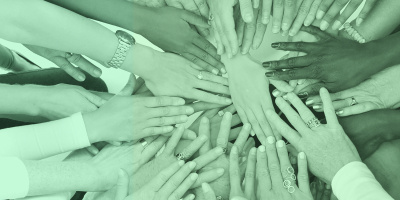Women Activists
A look at the fearless women who helped shape the labour movement.
Apr 11, 2018
The fearless women who helped shape the labour movement
In order to appreciate how far the labour movement and AUPE have come, it''s important to look to the past for lessons of where we started. Women''s influence on the labour movement has been significant from its earliest days. AUPE''s Centennial Project profiled the leadership roles that women have played in our movement and our union.
Mother Jones
Mary Harris Jones, nicknamed "Mother Jones," became a fearless organizer for the United Mine Workers during the first two decades of the 20th century. Labelled "the most dangerous woman in America," her militant organizing was so successful that she mobilized entire communities of miners, including men, women and children, to join strikes and organizing drives. She led a 125-mile march of child workers to bring the evils of child labour to the attention of the American public and broke colour barriers by welcoming African-American workers into the struggle. Jones was an indomitable spirit who, in her fight to protect working people, was banished from more towns and spent more time in jail than any other labour leader of her time.
Elizabeth Gurley Flynn
Elizabeth Gurley Flynn became a key organizer during the 1912 "Bread and Roses strike" - so named because women workers were fighting for dignity and improved conditions as well as higher wages. The strike of mostly immigrant women in Massachusetts ended with 23,000 workers on strike and with as many as 20,000 on the picket line. Its aftermath led to the creation of the U.S. Department of Labour and Massachusetts'' first minimum wage law, which protected pay for women and minors. Flynn worked hard to educate women textile workers about their rights.
Rank & File Leadership
It''s important to remember and recognize trailblazing women labour leaders such as these, but we should also acknowledge that labour history is the history of collective action. While the way forward for women in unions has been paved by women labour leaders, more importantly and lastingly, many major advances in rights and better working conditions have been gained through the work of thousands of everyday women union activists who struggled and agitated for key issues like pay equity, affirmative action, maternity benefits, child care, anti-discrimination hiring policies, sexual harassment policies, and health and safety advances.
Women have traditionally faced deep discrimination in the labour force and within the early labour movement. Women''s advancement within the movement has grown sporadically and through fierce struggles.
As we look back on the past century, it''s important to recognize our shared history of struggle and progress. It''s also a time to thank all the women activists who have fought to make our workplaces safer, better and more equal for everyone.
News Category
- Direct impact magazine features


